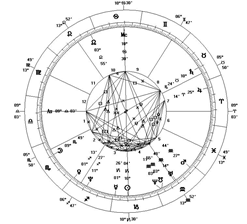
Non-sense or non-science?
How non-scientific tools helped my studies at MIT
Imagine a group of people falling into a deep ditch. Some make ladders to climb their way out. Others wait for floods to fill the ditch and then swim their way out. Many others mimic these survivors, but fail to escape the ditch. Instead, they complain about why they don’t have that luck to escape, instead of channeling their energy into action.
Our life houses many such ditches, and we often focus on scientific ways to ‘escape’. However, I would encourage the reader to shift his focus and instead, ponder why the ditches are there in the first place. Or I would encourage him or her to ask why the same methodology does not apply to all people, or even consider the ultimate question: why am I always the chosen one to be unfortunate?
You reader are not alone in asking these questions. Sometimes we feel that our energy or personal dynamic is indescribably weird, or we observe that some people make great success effortlessly while we struggle with unproductivity. These feelings, or “auras,” are undeniably important in the trajectory of our everyday life.
I felt like I was in a “ditch” in my first semester at MIT, when I strongly felt like a misfit. I now believe that I am here at MIT for a reason, but as a visual designer with an undergrad major in languages without a working background in the scientific disciplines, I considered myself far below the MIT standard, where everyone seemed smart, scientific, and highly competitive. I procrastinated more often than ever; I struggled with socializing; I failed to get a teaching or research assistant fellowship, no matter how hard I tried. All tried-and-true methodologies to foster success did not seem to make any difference to my situation. This imposter syndrome almost drove me mad.
Fortunately, I took a step back into the realm of Metaphysics, a discipline which I have been learning for years, and figured out my direction.


When I talk about metaphysics, I am specifically referring to the disciplines that study non-scientific, abstract, and non-reality-based concepts, like astrology, horoscope, spirituality, and even fortune telling. To describe metaphysics more broadly, this discipline depicts people’s (or sometimes even an entire community’s) innate energy fluctuations; to describe it more precisely, metaphysics could even suggest what actions a person should take in the next minute.
These metaphysics disciplines have been mocked as superstition (e.g., Barnum effect) for as long as humans history, but I respect them as a systematic, statistical database of individual human samples across thousands of years of human culture, which feature various combinations of signs (stars, zodiac, etc.) to describe the traits, characteristics, and ‘glows’ of people. Contrary to the common belief that these disciplines exist to ‘tell how lucky we are’, the core of these disciplines lies in ‘how we can make luck and be luckier.’
Surprisingly, regardless of the western or eastern cultural backgrounds, these tools correspond well with one another and depict a similar picture of my personal aura. I took three key takeaways from my study of these methodologies.
First, I learned the reason for my preference for generalization to specialization – LianZhen with TanLang in my Personality House in the ZiWeiDouShu System, and Gemini as my Moon sign in the Natal Chart both demonstrate that I intrinsically desire a broad width of interests rather than a great depth of understanding.
Second, the fortune reading suggests that I am literally going through a transition from an innate boom to a bust in my life, which partly explains why I would feel less productive and more powerless than ever in the last three years.
Last, Mars falls into the last House of my Natal Chart. It depicts a person who thinks thoroughly about a broad range of topics, yet dreads diving deep into a topic, a characteristic that describes me perfectly.
During my studies at MIT, the described intrinsic pace has helped me:
1) Embrace imperfection. People with broader interests are more likely to procrastinate, fear iteration, and emphasize perfectionism. I have been keeping a habit of a five to ten minutes mini-challenge per day to help form a habit of iteration. Instead of procrastinating because I know the task will never be completed perfectly, I allow myself to finish things with flaws and then improve them. Practice makes “perfect”!
2) Accept unproductivity and stay focused. Knowing that I was born with multi-tasking inclinations and tended toward great planning and less execution, I have been trying to change to a monotasking work style and gain a sense of achievement through smaller steps. As to socialization, for example, I set lower bars – to get only one new high-quality acquaintance in each networking event on average. It turned out more efficient!
In the past years, I have had several encounters where people are skeptical of my beliefs in these metaphysical tools, instead stating that my admission to MIT was merely based on luck. In most cases, I did not refute their points of view, as a crucial mindset of metaphysics is that ‘time tells’ the truth. In many cases, these doubters did not experience the power of metaphysics until they faced a seemingly insurmountable challenge and came back to me for a solution. My ultimate solution for them was to change their mindset – from viewing life as a carved-in-stone journey to life as a tunable song with rhythm, and from being self-oriented to approaching life with an altruistic perspective. I pointed out an interesting paradox in their former mindset: on the one hand, many seemed to believe that luck is nothing but random. They tended to overlook other people’s efforts, and attribute others’ great achievements to random good luck. On the other hand, they made no efforts waiting for the luck to come, but ended up having mixed feelings of jealousy, complaints, and curiosity, constantly wondering why they never received such luck as others seemed to.
Fortunately, people who had tried (thought skeptical at first) such solutions validated that luck is controllable. Some got healthier romantic relationships after changing their attitudes toward love; some obtained financial success after being more charitable, and others quickly changed their perspective on grief by reframing their ideas about death. They felt more blessed as they noticed the “ditches” that trapped them and escaped these “ditches” in their unique way. Indeed, even though luck is seemingly random, luck is actually the fruit of people’s commitments of will. Luck does not mean that the individual will always possess favorable positions (that’s impossible); instead, luck for an individual is a strong resilience to face change and a willingness to blunder, learn, adjust, and reshape. By doing so, the bad luck moments in our life are no longer jarring, but make us humble, poised, and ready for the good to come soon. Simply put, when we know ourselves are in a bust, stay dormant and soldier on; if we feel ourselves in a boom, get fully charged and fight for what we aspire!
To conclude, learning metaphysics provides people with:
1) A unique vision to understand ourselves and the world. Nothing in this world is one-size-fits-all. Science explains how the world works, but it is not the only discipline to offer an explanation. Metaphysical studies explain ways to interact with our surroundings and ourselves. Knowing our strengths and weaknesses and the innate rhythms of our lives can help us design unique methods to deal with people, careers, and our inner selves.
2) The power of change. With a clear vision of the rhythms of our lives, we can design better plans to unplug or fuel ourselves for goals. Gradually, a person’s personality, luck, and wealth, regarded as static or carved in stones, are proactively changed. The mechanism of change is simple: plan to change a habit by taking small daily steps, such as a little exercise, daily goodwill, etc. These tiny endeavors may bring more satisfaction, confidence, and attraction to people of our energy, and therefore, a better aura to bring good luck.
3) Priority of the present, not past nor future. Metaphysics does not tell the past or the future. Instead, metaphysical tools help people stay more focused on the present. The trajectory of life isn’t meant to be strictly followed; our trajectory is meant to be broken and re-designed. The key is to believe that good luck, and a bright future are in our own hands.
Looking back at the “ditches” that tripped me up during my start at MIT, I am now more confident in detecting and detouring around these challenges. These metaphysical tools have broadened my perspective and taught me to embrace change. Now, I can confidently say that challenges will always come and go, but if I have a good perspective, my ability to deal with these challenges will continue to grow.
Share this post:
